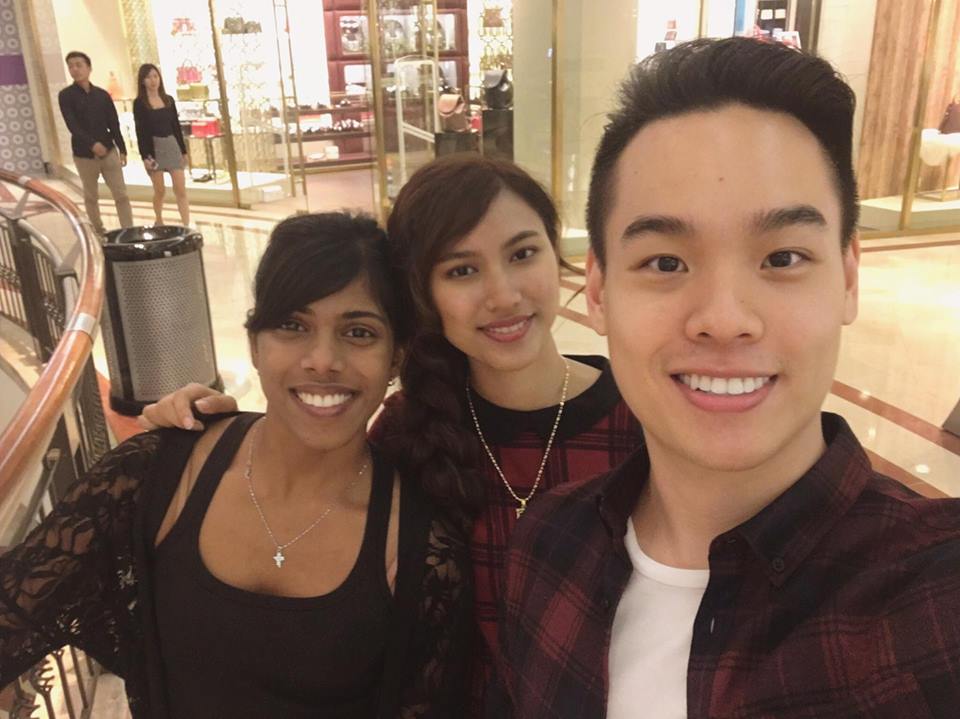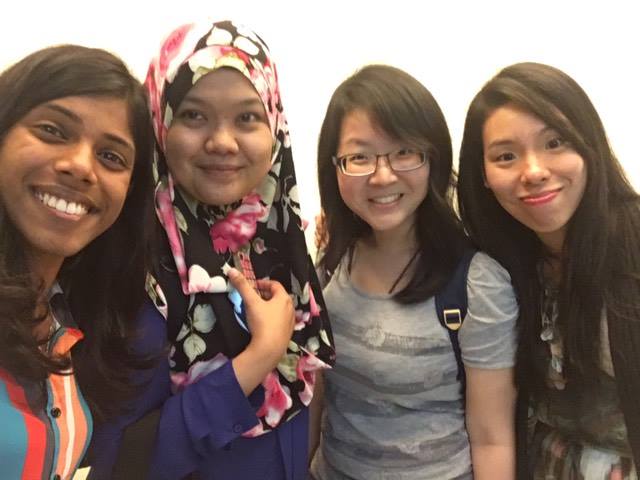"You're Pretty For An Indian. You Speak English Well For A Dark Indian."
Thanusha Ravindran has something to say about the hierarchy of beauty and intellect based on skin colour.
"You're pretty for an Indian."
"You speak English well for a dark Indian."
"How is it that you're smarter than me?! You're an Indian."
Those are just some of the remarks Thanusha Ravindran is used to getting from people.
In Malaysia, while diversity is said to be celebrated, our society remains colour-conscious, whether we realise it or not.
"I didn't just make these up. These (and its variants) are things I've been listening to and tolerating over the years," Thanusha said.
"I'm sorry, but none of these ever came off as compliments to me. I'm proud of the dark-skinned literate being I am, but it doesn't need to be highlighted that way."
You'd think that old prejudices about skin colour wouldn't be an issue in 2017 but the problem persists. It's an unfortunate reality, but Thanusha has been subjected to a series of "relatively insignificant instances of mistreatment".
She thinks it's about time this stops.
"Skin colour and race should never be used as a precursor to judge one's beauty and intellect," the 24-year-old said.
"Trust me, there's no correlation between skin melanin levels and intellect. And haven't you heard, the trending beauty statement is to actually have a heart?"
She recalled the times she was treated differently just because she's an Indian with dark skin
There was once when Thanusha was queuing up to pay for her groceries at a supermarket when she met a cashier who gave a differential treatment towards an Indian customer.
"The cashier didn't smile and dumped her purchases to the side expecting the customer to pack them into the plastic bags herself."
"Yes, that's a common practice. However, the cashier very politely attended to the next two customers (non-Indians) with a radiant smile and even packed their purchases for them," Thanusha said.
"When my turn came her face turned sour once again. And yes, you guessed it, she didn't pack my things either."
In other instances, some people completely ignored her. Perhaps they assumed that she couldn't afford their services.
"I walked into an upmarket hair salon to get a 'professional' makeover. I must admit that I was dressed fairly meagrely as the salon was right across the road from my house," she recalled.
"At first, no one attended to me. So I made the effort to give them the business they should essentially want by walking over to the manager and telling her I required their services - yes I stated the obvious."
According to Thanusha, the manager appeared to be rather reluctant to speak to her and didn't even try to make any eye contact.
"Mid-conversation a group of three women, Caucasians to be specific, dressed no differently from me, walked in."
The manager just left Thanusha alone almost immediately just to attend to the three customers who just came in, welcoming them.
"I felt humiliated for being stood up. Did my race reflect my inability to afford their services? Because that seemed like the only variable factor in the situation. Not very professional after all."
While she has been tolerant of this, one conversation with her young cousin made her say "enough is enough"
"My little cousin brother came home from school feeling bummed out. Giving in to my endless interrogation, he opened up to me about how some of his friends did not think he was cute, but everyone at home tells him otherwise," Thanusha said.
"He was confused by whom to believe. So, I tried consoling him by saying that his friends didn't mean it and were probably just fooling around."
"But he wasn't convinced and went on to say: 'I don't think I'm cute'. I asked why he thought so, to which he answered, 'Because I am darker than them'."
"That was my breaking point."
Thanusha realised that such experiences are not exclusive. A lot of people are judged and affected based on their skin colour.
"You speak English well for a Malay/Chinese."
"You're not as money-minded as my other Chinese friends."
"You're pretty good with numbers for a Malay/Indian."
Those statements above are just some examples of the underlying stereotypical attitude Malaysians have towards certain races.
"It is just as bad to look at people of any race or skin colour (not limited to Indians and dark skinned people) and judge them for... anything for the matter of fact," she said.
"Some of you may have innocently made these comments before without realising the underlying insult against your browner friends."
"A common discriminatory experience encountered by my peers and I are by people of our very own race," Thanusha noted.
"You are a bad person, a sinner because you don't wear a tudung."
"You are a show-off for speaking English in the company of others who are not Chinese."
"You are not a true Indian because you dress that way and don't speak Tamil."
As pointed out by Thanusha, those are familiar phrases that we've heard before at some point in our lives.
She has since asked some hard-hitting questions: "Why do we do this? Why can't we all look beyond the barricades of our races and skin colour? Why are we defined by and limited to categories like Bumiputera, Cina, India dan Lain-lain - I'm one of those unfortunate 'lain-lain'. Why?"
Thanusha, who works as a teacher, believes that drastic measures for change must come from within us
"As much as our country strives for unity by creating propagandas like 'Bangsa Malaysia' and 'Satu Malaysia', they still haven't addressed the discrimination on the forms we fill," the psychology graduate said.
"Racial unity cannot be achieved alone - it can never be a one-man show. It takes the genuine efforts of many to make the needed changes within, by starting with the man in the mirror."
"And then, racial discrimination will eventually dissipate into oblivion, making way for racial unity to finally take form."
Thanusha's story is one of many others featured on the Malaysian City Life series on SAYS. Do you have a story or experience to share, or have you seen any we should write about?
SUBMIT YOUR STORY NOW. FB message us or email us at [email protected] about your intent to share something with us. It could be about a particular time in your life as an urban city-dweller in Malaysia, or it could be a story you've seen or heard.
We'll get in touch with you for your story to be featured on SAYS!
Stay tuned for the next episode!



